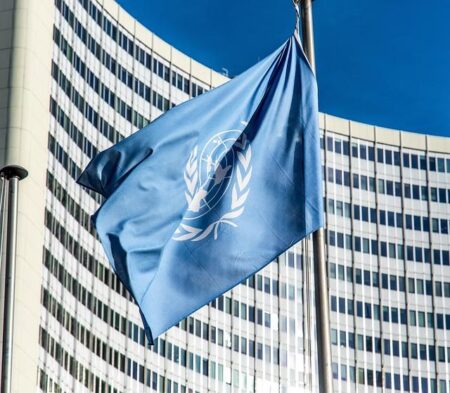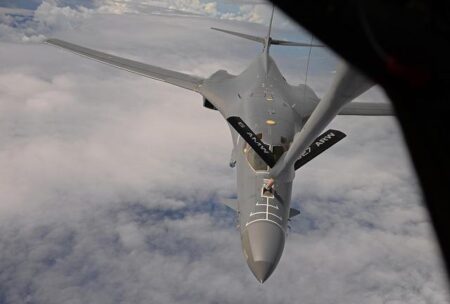India’s professionals now have an incredible chance to live and work in vibrant Spain with the brand-new Digital Nomad Visa! This exciting visa opens the door to long-term stays, ideal for anyone embracing the freedom of remote work. To qualify, applicants need to prove remote employment, meet income thresholds, and submit valid documents-unlocking extended European adventures while working from anywhere!
Browsing: India
The EU and India unveiled a dynamic joint statement on 27 January 2026, showcasing their shared commitment to intensify climate action, expand trade opportunities, and accelerate digital innovation-heralding an exciting new chapter in their strategic partnership
Google’s latest blog reveals thrilling new initiatives that harness the science of learning to revolutionize education throughout India. By combining state-of-the-art AI with trusted research techniques, these groundbreaking efforts are set to empower the next generation with personalized, impactful learning tools-paving the way for a brighter tomorrow
In response to shifting U.S. trade policies under Trump, India and the European Union are forging stronger economic ties, aiming to boost trade and investment amid global uncertainties-ushering in a bold new era of strategic partnership
Google Photos is thrilled to introduce its exciting prompt-based editing feature to users in India, Australia, and Japan! Now, with just a few simple text commands, you can effortlessly transform your photos using powerful AI-bringing creativity and control right at your fingertips like never before
KPMG warns that allowing stranded H-1B workers to continue their jobs from India might trigger a “permanent establishment,” putting U.S. companies at risk of significant tax liabilities, VisaHQ reports
India and the EU have sealed a landmark trade agreement, hailed as the “mother of all” deals, poised to turbocharge economic ties, cut tariffs dramatically, and strengthen cooperation across key sectors, officials announced on Monday
The Indian rupee soared against the dollar, driven by a softer U.S. currency and a wave of positive market sentiment sparked by rising optimism over the EU-India trade pact, Reuters reports. Investors are buzzing with confidence, eyeing exciting trade opportunities on the horizon
India is accelerating its drive to expand its network of free-trade agreements, aiming to boost exports and strengthen strategic alliances, according to the International Institute for Strategic Studies
The Indian rupee’s dramatic plunge against the dollar has ignited a wave of investor enthusiasm for India-focused ETFs. As currency risks climb, these three standout India ETFs are emerging as exciting opportunities for growth and diversification
Sir Mark Tully, the legendary BBC correspondent and celebrated author, has passed away. Renowned for his profound and insightful coverage of India, Tully’s storytelling bridged cultures and brought global audiences a deeper, more vivid understanding
France has arrested the Indian captain of a tanker linked to Russia’s infamous “shadow fleet,” officials reveal. This bold move ramps up the crackdown on vessels suspected of aiding Russia in evading international sanctions
India’s Nipah virus outbreak has already affected five people, prompting nearly 100 others to be placed under quarantine. In a swift response, Thailand has started screening passengers arriving from India, according to media reports
U.S. Treasury Secretary signals potential tariff relief for India as Russian oil imports decline. Officials reveal this move aims to strengthen economic ties in a shifting global energy landscape
In a stunning revelation, an astronaut gazed down at India from space, captivated by how the country’s radiant cities and towns light up the night, beautifully showcasing the deep bonds that unite its people across the vast subcontinent
OpenAI CEO Sam Altman is preparing for an exciting visit to India, timed perfectly with a major summit of global AI leaders in New Delhi, sources reveal. This trip shines a spotlight on India’s growing power in the AI landscape and opens the door to thrilling new opportunities for collaboration
A senior Trump aide has teased the potential removal of the 25% tariffs on Indian goods, igniting new hope for a breakthrough in easing trade tensions between the US and India, NDTV reports
In a captivating deep dive, The Economist unravels the complex aftermath of the India-Pakistan wars, revealing how, despite no clear victor emerging, these conflicts dramatically reshaped regional power dynamics and forged powerful new national identities
Hindustan Zinc is gearing up to unveil India’s first-ever zinc tailings recycling facility-a revolutionary step that will boost sustainable metal recovery and dramatically reduce environmental impact, marking a bold new chapter for the country’s mining industry
In an exclusive interview, Karishma Karer and Punit Mehta, co-founders of India Watch Weekend, dive into the rising obsession with monochrome watches and unveil their exciting vision to unite watch enthusiasts from every corner of India




















